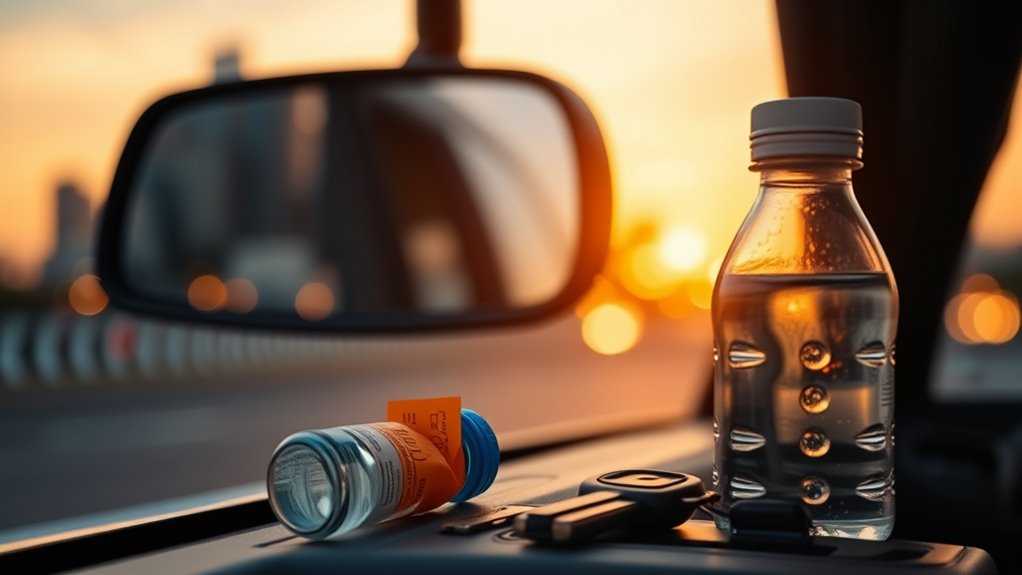Many people underestimate their options after a DUI conviction, especially regarding non-owner car insurance. This type of insurance can be vital if you need to drive but don't own a vehicle. It's often a necessary step for fulfilling SR-22 requirements to regain your driving privileges. However, not all insurers provide this coverage, and eligibility can vary. So, what should you consider when exploring non-owner insurance options?
Are you facing the challenges of securing car insurance after a DUI conviction? If so, understanding your options is vital, particularly when considering non-owner car insurance. This type of policy is designed for individuals who frequently drive vehicles they don't own, offering liability coverage that could be important in your situation. After a DUI, most states require an SR-22 filing to reinstate your driver's license. Non-owner car insurance helps you meet this requirement without needing to own a vehicle. Additionally, it's important to note that non-owner car insurance is specifically tailored for those who do not own vehicles but still need coverage.
One significant advantage of non-owner car insurance is its cost-effectiveness. Generally, it's less expensive than standard car insurance policies, which is a relief when managing the financial aftermath of a DUI conviction. While it covers bodily injury and property damage liability, remember that it doesn't cover vehicle damage. Consequently, if you're driving someone else's car, you're protected against liabilities but not the costs associated with damage to that vehicle.
Non-owner car insurance offers affordable liability coverage, ensuring protection against liabilities without vehicle damage costs after a DUI conviction.
If you're in a state that mandates SR-22 filings after a DUI, securing non-owner SR-22 insurance can be your best course of action. The insurance company will file the SR-22 on your behalf, simplifying a typically complex process. It's essential to recognize that this coverage is usually required for a period of two to five years, depending on the state. While premiums may increase due to your DUI history, they remain more affordable than traditional vehicle insurance.
In states like Florida and Virginia, you may encounter the FR-44 requirement for more serious DUI offenses. This mandates higher liability coverage than the SR-22 and can be more expensive, particularly because non-owner FR-44 options are rare. If you reside in one of these states, understanding the specific requirements is vital for compliance.
Eligibility for non-owner car insurance is straightforward. It's available to those who regularly drive non-owned vehicles, including drivers with DUI convictions. To apply, you'll want to conduct thorough research and compare quotes from various insurers, as not all companies offer non-owner insurance. Make sure you have your name, driver's license number, and payment method ready for a smooth application process.
Financially, non-owner car insurance can save you money compared to insurance through rental companies. It offers essential liability protection, safeguarding you against potential financial risks in case of an accident. You can also consider additional coverage options, such as medical payments or uninsured motorist coverage, to enhance your protection.
Ultimately, non-owner car insurance isn't just a financial safety net; it's a legal necessity that helps you comply with state regulations following a DUI. By securing this coverage, you can avoid the legal issues associated with driving uninsured and work towards reinstating your driving privileges. Understanding the specifics of your state's mandates will empower you to navigate this process more effectively, allowing you to regain your independence on the road.
Conclusion
In the aftermath of a DUI, securing non-owner car insurance can feel like maneuvering through a labyrinth. Yet, with careful research and the right insurer, you can find a path to coverage that meets your needs. This insurance not only fulfills legal requirements but also acts as a safety net for your driving future. By understanding your options and eligibility, you can emerge from this challenging experience with renewed hope and a clearer road ahead.

